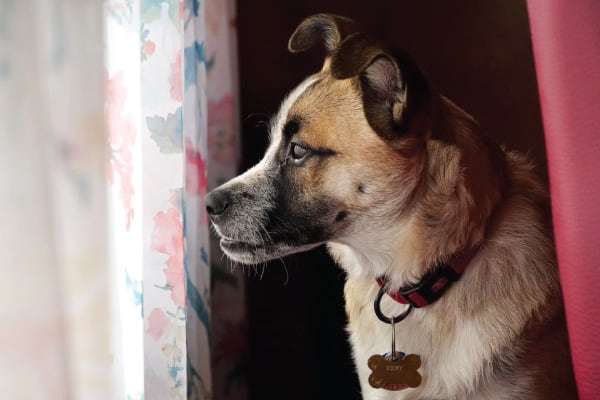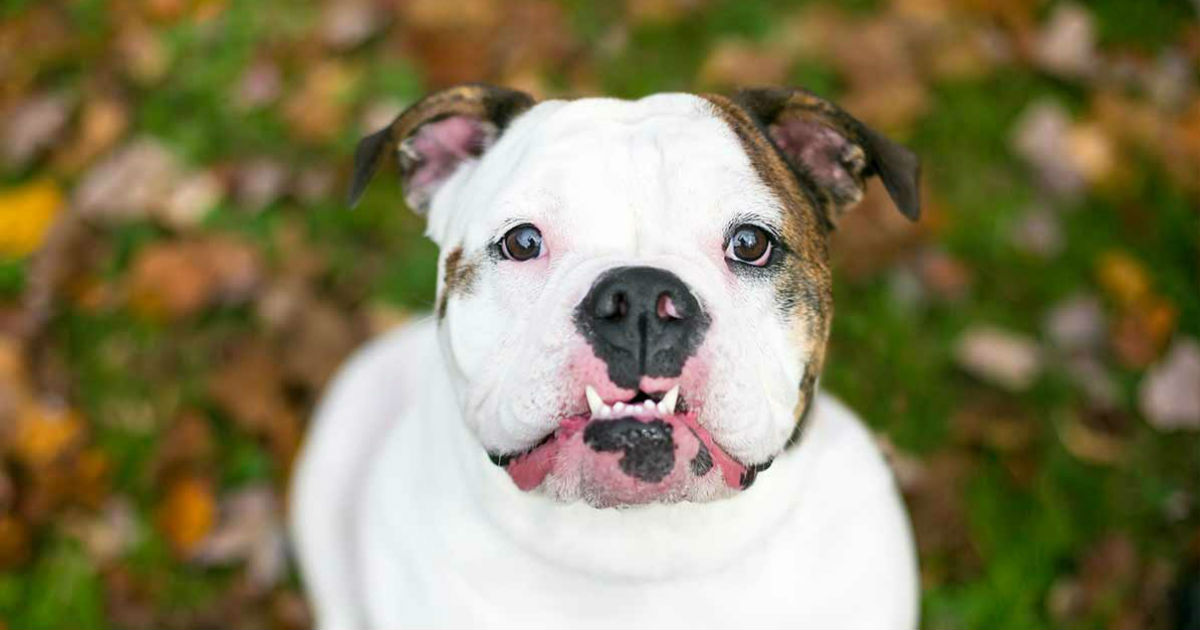
Well underbites in canines like a Vizsla are caused by the following factors skeletal and dental abnormalities. Well underbites in canines like a Vizsla are caused by the following factors skeletal and dental abnormalities.

Further puppies from pet stores had increased risk of behavioural issues in comparison to puppies purchased from breeders 45 57 while the quality of maternal care can have long term behavioural fallout and alter the physiological responses to stress 4458.
Puppies underbite risk factors. A dog with an underbite may be at increased risk for various health problems. In cases of slight underbite due to a hereditary skeletal malocclusion serious health issues are unlikely. As long as the dog is able to eat drink and self-groom without issue there is.
This results with the upper and lower rows of teeth to not align together. Both dental and skeletal underbites are at least for one part due to the dogs genetics. Problems during gestation or early development can also lead to underbites as can injuries and infections in.
Underbite in puppies may sometimes be corrected using braces. However extraction and filling can also be applied. Treatment options for a puppy with underbites will vary depending on the type of malocclusion your pet faces his age health status and other factors.
Just like adult dogs puppies with underbites are prone to health issues. Health Risks Associated with Dog Underbite. Untreated underbite causes more than off-kilter smiles.
As you may have guessed dogs with malocclusion are susceptible to a wealth of health risks as outlined below. It ushers in a life of discomfort for your beloved canine companion. Difficulty chewing or swallowing.
Inability to grind or tear food. An underbite is caused by genetic factors and in some breeds is regarded as an acceptable feature in a dog. The upper jaw is longer than the lower one.
When the mouth is closed a gap between the upper and lower incisors occurs. The risk of dewclaw injury also may prompt dewclaw. If you purchased a puppy from a reputable.
Several factors can cause your dog to have an underbite. Underbites with a dental origin mean that your dog has a few abnormally positioned teeth that disturb the standard skeletal structure of the face. With some similarity to underbites of children a canines dental underbite happens when one of the dogs baby teeth doesnt fall out.
An underbite in puppies otherwise known as canine malocclusion is when the lower jaw mandible jaw protrudes further out than the upper jaw or maxilla jaw sometimes an underbite will not cause any health issues and other times it can be more serious. This is especially true of small snub-nosed dogs such as Boston terriers pugs and shih tzus. These breeds are also more likely to have abnormalities such as retained baby teeth impacted teeth malocclusions such as an underbite and teeth with abnormal roots says Dr.
Further puppies from pet stores had increased risk of behavioural issues in comparison to puppies purchased from breeders 45 57 while the quality of maternal care can have long term behavioural fallout and alter the physiological responses to stress 4458. That is dogs bred by their guardians may reflect a higher level of both maternal. The 1 and 2 common injury factors for puppies - its not just about hips and elbows.
Your puppys skeleton is made up of 320 bones 1 for the boys and some bones have as many as five 5 growth plates. The more ridgesplanes and different dimensions the more growth plates - the best examples are the large flat bones of the. Well underbites in canines like a Vizsla are caused by the following factors skeletal and dental abnormalities.
We will break down what each of these means to you. Dental factor This is the most common cause of underbites in dogs. If your puppy has bad breath that is not going away mention it to your veterinarian.
Tobyotter Theres normal puppy breath which has a distinct odor. And then theres sick puppy breath meaning the puppy has something wrong creating an abnormal odor from the mouth. Very young puppies have a distinct smell to their breath lovingly called puppy breath.
Some childhood habits may increase risk for developing an underbite or other dental misalignment. Contributing factors to an underbite include. Pushing on teeth with the tongue.
Understanding the likely causes Dog underbite can help to reduce the risk as well as prevent the recurrence of the same in future generations. Dogs with underbites usually have one or more of the following as the underlying factors for the dentition. Genetics is the most obvious cause of dog underbite.
Although the proportion of human disease for which pets are specifically responsible is largely unknown greater than 70 pathogens of companion animals are known to be transmissible to people and pet contact has been clearly established as a risk factor for illness caused by various pathogens including Campylobacter19 20 Salmonella Pasteurella. Genetics is the most obvious cause of dog underbite. The condition is hereditary which means that a dog with an underbite has high chances of passing the genes down to future generations.
This is very true for brachycephalic breeds. Puppies usually have 28 deciduous teeth or milk teeth. These are later replaced by permanent teeth and by the time.
Fading Puppy Syndrome. It can be caused by several factors including low birth weight poor mothering infection environmental impact or congenital defects. Faders may appear to be normal at first but they begin to deteriorate slowly.
8 Nutrition is important. While puppies are growing rapidly it is critically important to get their nutrition right. Growing puppies need to eat enough to support growth but they should not be fat because any extra weight can increase the risk of developing hip dysplasia Hedhammar et al 1975 Kasstrom 1975.
Bertone ER Snyder LA Moore AS. Risk factors for oral squamous cell carcinoma in cats. J Vet Internal Med 17 557-562 2003.
Bertone ER Snyder LA Moore AS. Environmental tobacco smoke and risk of malignant lymphoma in pet cats. Am J Epidemiology 156 268-273 2002.
If your Frenchie has a problem that doesnt seem normal then there are some health risks like teeth wearing out due to malocclusion which may result in mouth tissue damage when the upper teeth hit against the inside of lower jaw during chewing. Your French Bulldog might be more prone to infections and diseases due to their underbite. Skeletal genetic or dental irregular tooth eruption factors can cause this condition.
Additionally untreated open bites typically result in speaking problems and issues tearing and chewing food. Common treatment options for open bites include. High pull headgear for children only Vertical chin cup for children only.
Plaque and tartar buildup. According to PetMD teeth misalignment also subjects the affected dog to a higher risk of tartar and plaque accumulation. This is often associated with bad breath.
This is a rare anatomical problem characterized by an asymmetrical growth of the left and right sides of the upper jaw.